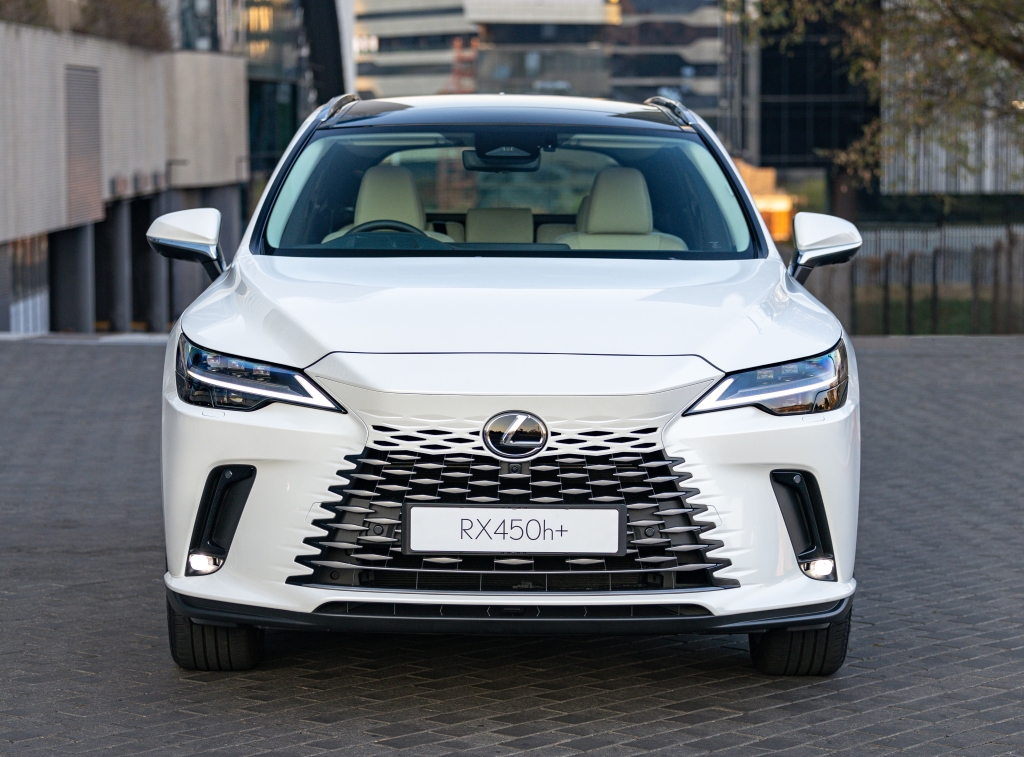
While an available hybrid drivetrain has been a Lexus RX feature for decades, the latest-generation model finally introduces a plug-in hybrid option to the local market. Could this be the perfect bridge between internal combustion convenience and electric efficiency?
In line with the “Lexus Electrified” corporate philosophy, this Japanese premium automaker has steadily expanded its selection of hybridised products in South Africa. Some models, such as the current-generation IS sedan, can only be had locally with a self-charging hybrid powertrain, while even the gorgeous LC has dropped its melodious V8 for an electrified V6 (albeit with a very sophisticated electrical drive system).
Related: Get more details the new Lexus LC 500h here.
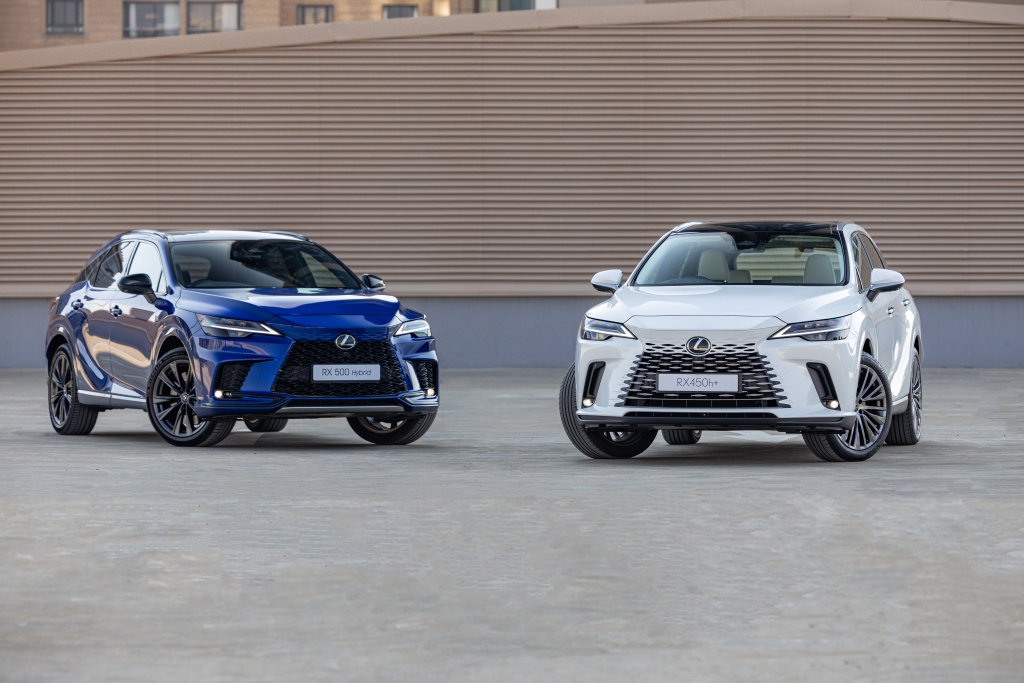
Lexus RX hybrids available from its 2023 launch, but the plug-in version was delayed
One model which has always begged for something more interesting than the rather pedestrian “four-cylinder with some electric assistance” hybrid, is the RX midsize-SUV range. While the older electrified models could post excellent fuel consumption figures, they could never provide the performance or refinement on offer elsewhere in its rather pricey market segment.
The latest (fifth) generation RX largely addressed this matter upon its introduction, thanks to the addition of a higher-performance RX 500h variant. The 500h drivetrain combines a 2.4-litre turbo four-cylinder with Lexus’s customary e-CVT (which sandwiches the electric motor between the engine and CVT to drive the front wheels), along with a second electric motor to provide on-demand power to the rear wheels. When the new generation arrived in SA, a plug-in hybrid variant was announced, but its availability was delayed until now.
Total system outputs of 273 kW and 550 Nm certainly address older RX hybrids’ performance deficiencies, but the 1.44 kWh nickel-metal hydride battery in the RX 500h means that its pure-electric driving range is just as limited as it’s always been. The non-turbo 2.5-litre RX 350h uses a similar arrangement, but its battery is even smaller (only 1.29 kWh) and it has less power coming from its petrol engine, so its electric-only driving range is even more restricted and its performance suffers as a result.
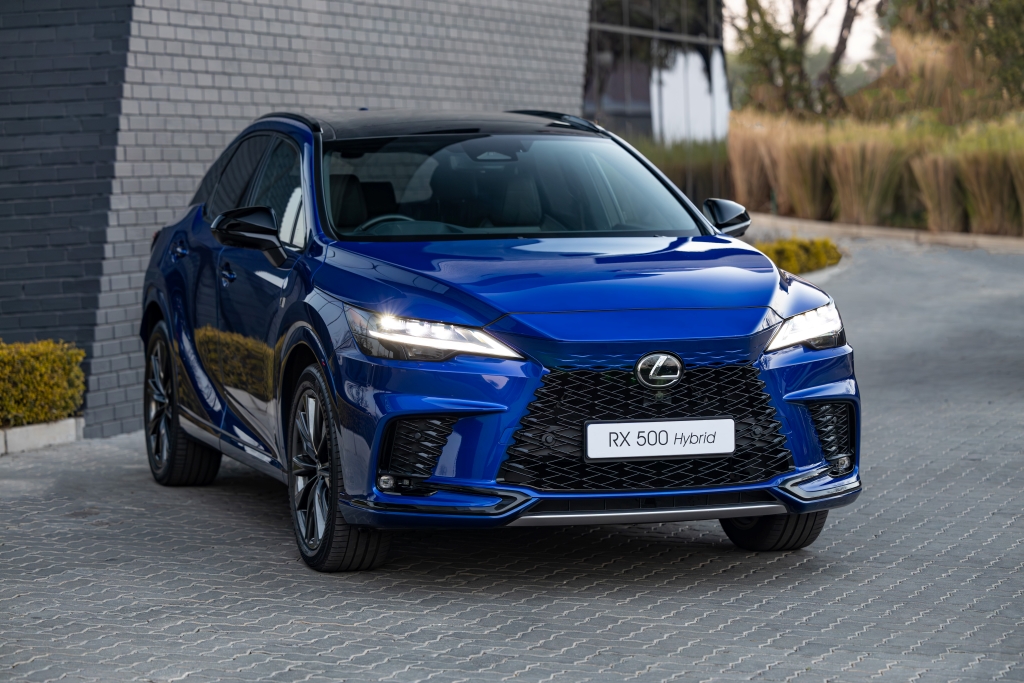
Lexus RX 450h+ plug-in hybrid details
The key difference between the existing RX 350h and the newly-arrived RX 450h+ plug-in hybrid (PHEV) lies in its battery pack, which grows substantially in capacity and changes to lithium-ion chemistry. The new battery is rated at 18.1 kWh, which increases its pure-electric driving range to around 66 km.
And, because the new battery chemistry can sustain higher power demands for longer periods, the electric motor outputs could be increased as well. While the 350h’s 2.5-litre (non-turbo) petrol engine and hybrid hardware remain essentially unchanged, the upgraded electrical system allows for higher outputs from the electric motors, boosting the combined system power from 184 kW to 227 kW. Note that this is still less than the RX 500h offers, hence its numerically-lower model designation.
The lithium-ion battery also allows for quicker charging, and facilitates use of an on-board 6.6 kW charger. When connected to a 230V/32A charging outlet, an 80% battery charge can be achieved in about two-and-three-quarters of an hour, while it will get up to 80% in less than eight hours from a normal 230V wall socket in your garage. Perfect for overnight battery replenishment at home, in other words.
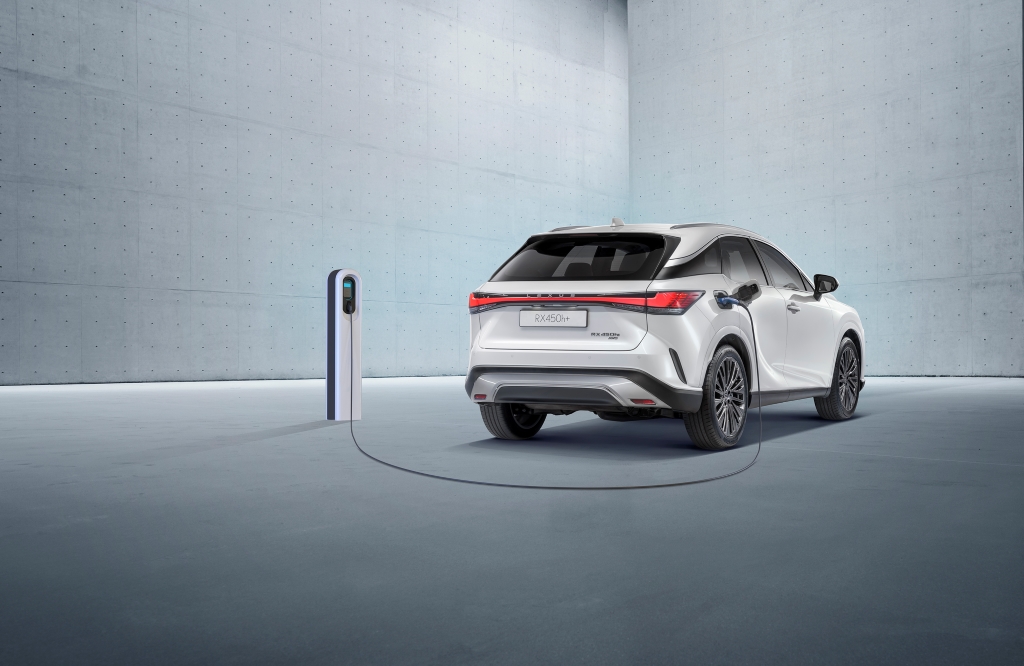
2024 Lexus RX 450h+ performance
Even though the RX 450h+ misses out on the potent 2.4-litre turbo petrol from the non-hybrid RX 350 and self-charging RX 500h, the added battery capacity and increased e-motor outputs nonetheless result in some useful performance improvements. The instant added torque will make for a more responsive driving experience, and overtaking performance should show easier acceleration with reduced overall noise levels.
Lexus reckons that the RX 450h+ should get from a standstill to 100 km/h in only 6.5 seconds, while an impressive official consumption figure of 1.3 litres/100 km is claimed. Long-distance trips and spirited driving will likely realise real-world consumption closer to the 8 litres/100 km mark, but, provided the battery is topped-off regularly, shorter urban commutes could be achieved without needing a drop of fuel.
That’s why plug-in hybrids make so much sense, especially in the local context: They offer all the benefits of pure EV driving in urban use, save fuel on longer commutes, and retain the convenience of quick refills on longer trips.
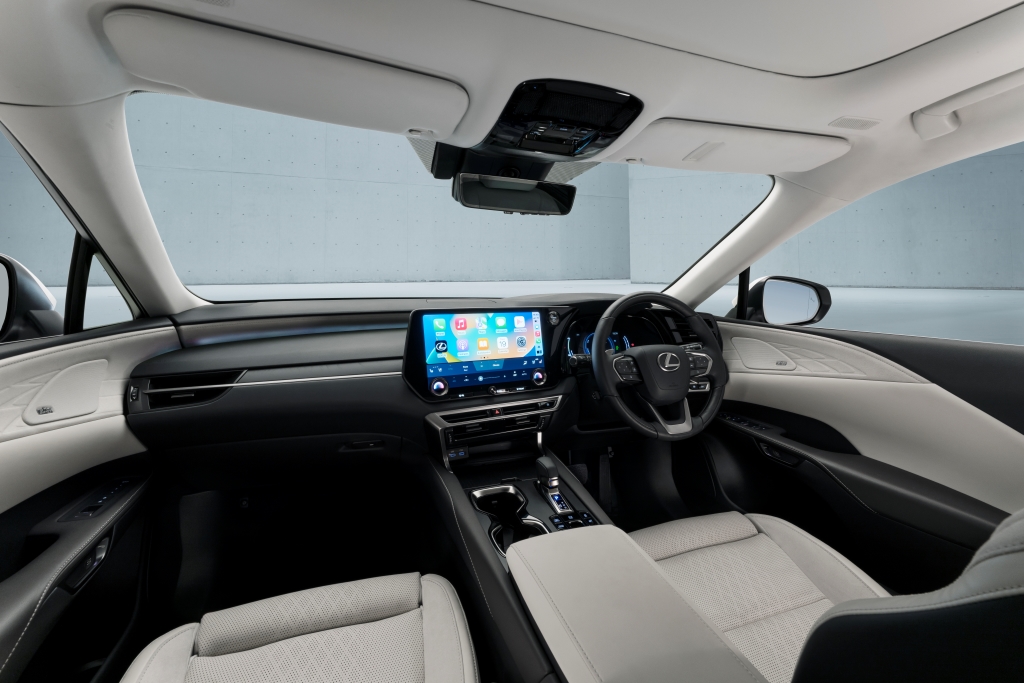
Lexus RX Range
The Lexus RX range starts off with the petrol-only RX 350, with a 2.4-litre turbo four-cylinder engine sending a sturdy 205 kW and 430 Nm to all four wheels through an eight-speed torque-converter automatic. This is the only RX with a mechanical all-wheel drive system, with all other derivatives employing an electric motor on the rear axle to provide on-demand AWD capability.
Even at its entry-level positioning, the performance is in keeping with the base RX 350’s asking price of R 1 452 600, scooting to 100 km/h in a decent 7.6 seconds. The RX 350 can also be specified in F-Sport trim, which gets a sportier look on the outside, and nicer trim and some extra toys inside.
The F-Sport is no faster than the base model, though, so you really need to consider whether its R 121 500 price premium is really worth it.
Related: The Lexus RX is comprehensively equipped across the board - check out their specs here.
Next up is the RX 350h, which has a non-turbo 2.5-litre engine mated to the lower-output self-charging hybrid system. It produces 184 kW in total, increasing the 0 - 100 km/h time to 7.9 seconds while charging you R 1 502 500 for the privilege of helping to save the planet.
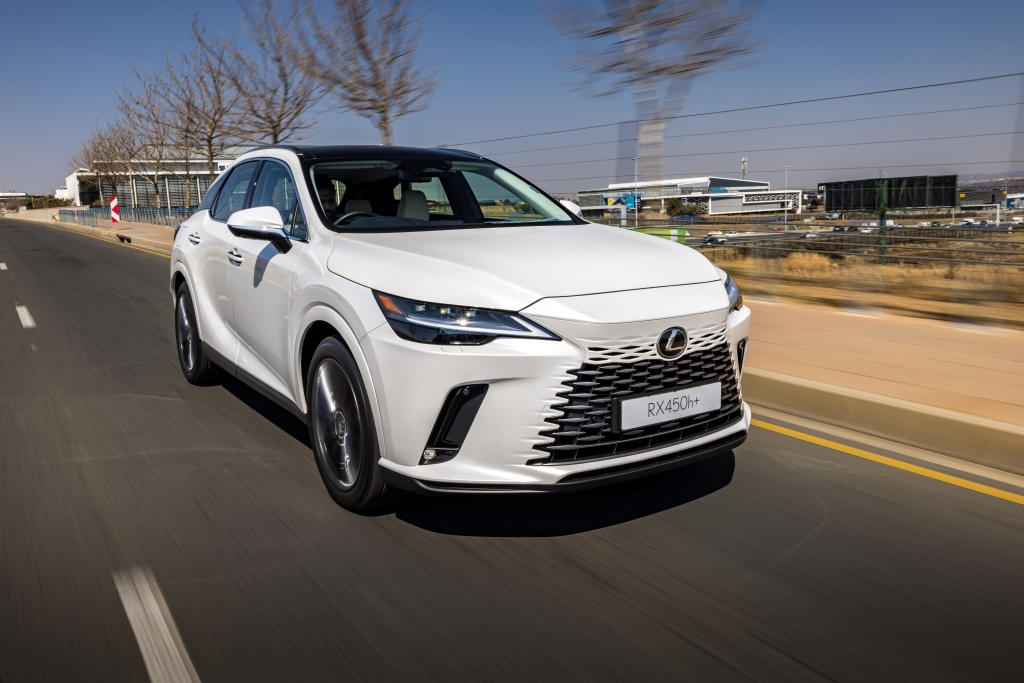
The newly-added RX 450 h+ adds much stronger performance and potentially petrol-free urban driving, so its list price of R 1 645 600 seems reasonable for the advantages of opting for the mid-level hybrid instead of the self-charging one.
For the ultimate (current) Lexus hybrid SUV experience, the RX 500h F Sport combines the turbocharged petrol engine with the familiar hybrid drive system. It produces 273 kW in this guise, but it’s no quicker to 100 km/h than the RX 450h+ and won’t easily handle an average commute without petrol power getting involved.
The range-topper does gain the complete set of F Sport niceties even if it performs similarly to the PHEV, with much sportier styling and a nicer interior justifying its price premium of R 94 400. First instincts say that the RX 450h+ offers the most virtues per Rand among the hybrid models, however.
Martin Pretorius
- Proudly CHANGECARS











